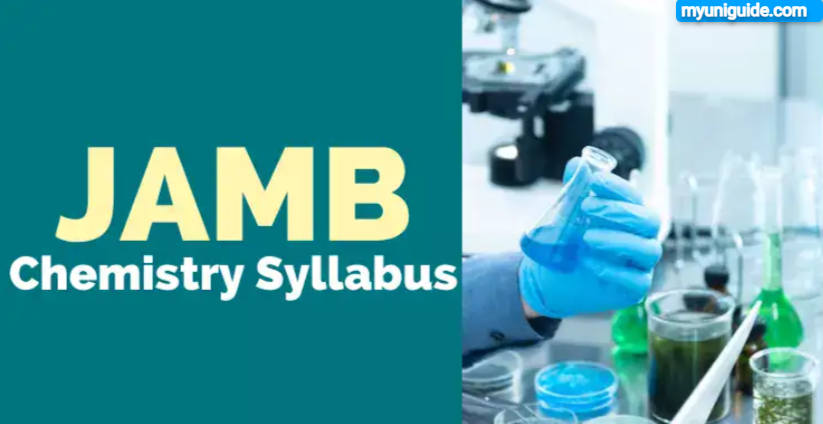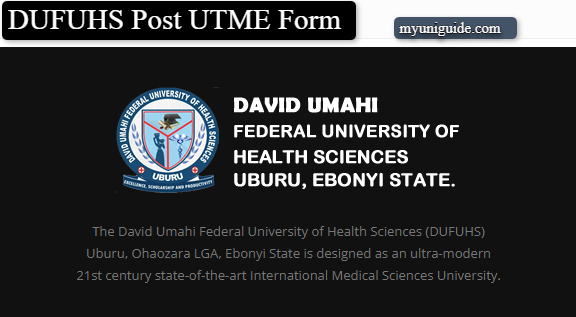Chemistry JAMB Syllabus 2025: Free PDF & Hot Topics
The Chemistry JAMB syllabus is one of the most important tools for students preparing for the JAMB UTME. It helps you know exactly what to study, the topics that frequently appear in the exam, and the right recommended textbook to use.

Without following the official JAMB syllabus, many students end up reading irrelevant materials. In this guide, you will find everything you need about the JAMB Chemistry syllabus, including topics, repeated questions, study tips, and how to use it effectively for the upcoming JAMB UTME examination date.
What is the JAMB Chemistry Syllabus?
The JAMB syllabus for Chemistry is a structured outline that lists the elements, topics, and concepts you must cover before sitting for the exam. It is provided by JAMB to ensure all candidates focus on the same curriculum.
Its major objectives are:
- To test your understanding of atomic structure, electron configuration, and the behaviour of compounds.
- To assess your ability to perform simple calculations and balance simple equations in Chemistry.
- To ensure students understand chemical bonding, chemical substances, and common chemical reactions.
- To prepare students for higher studies in Chemistry, computer studies, pharmacy, medicine, and engineering.
Full List of Topics in the Chemistry JAMB Syllabus
Below is a simplified breakdown of the official topics under the chemistry syllabus:
1. Structure of Matter
- Atomic structure and atomic number
- Molecular motion and the kinetic theory of gases
- Noble gases and their unique properties
2. Periodic Chemistry
- Periodic table and transition metals
- Electron configuration of elements
- Properties of metals and non-metals
3. Chemical Combination
- Laws of chemical combination
- Balancing simple equations
- Mole concept and simple calculations
4. States of Matter
- Properties of solids, liquids, and gases
- Fractional distillation of liquid mixtures
- Industrial preparation of gases like hydrogen and oxygen
5. Acids, Bases, and Salts
- Characteristics of acids, bases, and salts
- Double salts and redox reactions
- Importance of sodium chloride in daily life
6. Energy and Reactions
- Chemical reactions and their types
- Nuclear reaction and radiation
- Reaction rates, catalysts, and energy changes
7. Electrochemistry
- Electrolysis of chemical substances
- Redox reactions in electrochemical cells
- Applications of electrochemistry in industries
8. Organic Chemistry
- Classification of organic compounds
- Organic compound structures and IUPAC nomenclature
- Alkanoic acids and their reactions
- Industrial preparation of organic chemicals
9. Inorganic Chemistry
- Common inorganic compounds
- Laboratory and industrial preparation of important chemicals
- Role of elements in the environment
10. Chemistry and Industry
- Laboratory preparation vs. industrial preparation
- Application of fractional distillation in petroleum refining
- Chemistry in industries like food, cement, and fertilisers
Frequently Repeated Topics in JAMB Chemistry
Over the years, JAMB has repeated certain topics frequently. Some of the most tested areas include:
- Mole concept and simple calculations
- Periodic table and atomic structure
- Kinetic theory of gases
- Chemical reactions and reaction rates
- Electrolysis
- Organic compounds and alkanoic acids
- Industrial preparation of chemicals
- Redox reactions and balancing equations
By focusing on these areas, you increase your chances of scoring higher.
How to Use the Chemistry JAMB Syllabus Effectively
Many candidates read the syllabus but don’t know how to use it strategically. Here are some tips:
1. Align Your Studies with the JAMB Brochure
The JAMB brochure outlines subject requirements. If your JAMB subject combination includes Chemistry, then the Chemistry syllabus must guide your preparation.
2. Study with Recommended Textbooks
Stick to the recommended textbook list in the syllabus. They cover JAMB topics in detail, unlike random materials.
3. Practice with JAMB CBT Software
Use JAMB CBT practice software to test yourself. This tool simulates the real exam and covers the JAMB UTME general paper and science subjects.
4. Focus on Laboratory and Industrial Applications
Understand both laboratory preparation and industrial preparation of chemicals like sodium chloride, fertilisers, and fuels.
5. Solve Past Questions
Most repeated questions come from compounds, gases, elements, and reaction mechanisms.
Chemistry JAMB Syllabus Study Tips
- Create a timetable covering all chemistry syllabus topics.
- Practice simple calculations involving moles, mass, and concentration.
- Master organic compounds, IUPAC nomenclature, and alkanoic acids.
- Don’t skip nuclear reaction, redox reactions, or transition metals.
- Revise important electrolysis processes like that of sodium chloride.
- Understand everyday applications of Chemistry: water purification, pollution control, and food preservation.
Why Chemistry is Vital in JAMB
Chemistry is more than a school subject; it is the foundation of medicine, engineering, and environmental sciences. Mastering the chemistry jamb syllabus also helps you in real life:
- Elements and their uses in daily products
- Compounds like sodium chloride for health
- Salts in industries and agriculture
- Industrial preparation of fuels for energy
- Chemical bonding explains how molecules form
Conclusion
The Chemistry JAMB syllabus is your blueprint for scoring high in UTME. It lists the topics on chemical reactions, organic compounds, electrolysis, and industrial preparation that you must master. By following the JAMB syllabus, using the right recommended textbook, and practising with JAMB CBT software, you can handle any reaction, whether it involves inorganic compounds, double salts, or transition metals.
Start early, practice well, and align your studies with the chemistry syllabus. Success in Chemistry and the entire JAMB UTME is within your reach.





